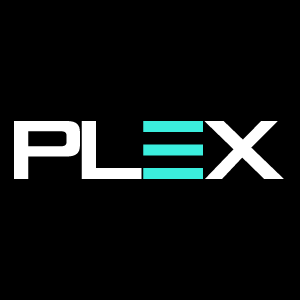

Now Available!
Get your copy of the 7th Annual State of Smart Manufacturing and hear from 300+ manufacturers in this new survey report!
Subscribe to Our Blog
For a monthly digest of expert insights, data points, and tips like the ones in this article.
Many years ago, as in-house IT platforms and infrastructure gave way to cloud-based SaaS systems, security was a more substantial concern than the efficacy of the software itself. While cloud-based systems offer a host of advantages in cost, updates, reduction in infrastructure, and other benefits, many IT professionals and decision-makers are worried about their data security.
Part of this concern was based on the newness of cloud-based storage and computing. Having spent years building firewalls, virus protection, and other security protocols, IT staff were wary about placing control of company data and transactions outside the physical walls of the business. It turns out that those fears were well-founded as the move to the cloud revealed several new challenges for IT managers to address. As the benefits overwhelmed the reservations, system designers developed more secure cloud communication to address these concerns while allowing companies the access and value needed.
Where We Were
During initial migration to the cloud, companies had various concerns. Many executives worried about secure communications. Patents and other sensitive business data are constantly discussed over email and messaging, and many were worried about outside actors gaining access. Others were worried about attacks through "hacking" or sophisticated DDS attacks that could overwhelm a cloud, as they had become accustomed to in-house systems. Some of these attacks could remove sensitive company data, while others, such as malware, would corrupt a system and leave the company unable to perform basic transactions.
In recent years, one of the most potent threats has been through even more dangerous ransomware, where those breaching the system take company data and charge an exorbitant ransom to get it back. As noted in one whitepaper by Plex, less than 25% of these companies have their data returned after paying, adding insult to injury.
Where We Are Today
Cloud security for storage and SaaS applications is different than in-house IT security. In-house systems need only watch for attacks on themselves. But in a cloud-based system, there are two components. The first is the cloud provider's responsibility to ensure security for its infrastructure, receipt, and delivery systems for the services provided. The second is the responsibility of companies who use the cloud to enact adequate protocols and ensure cloud data and security cannot be breached from local user access points.
Today, SaaS companies such as Plex DemandCaster deploy industry best practices to ensure their cloud-based systems are secure. This includes strong antivirus and spyware protection updated daily. Another cloud security measure that reduces risk is enhanced DDoS protection to detect and mitigate threats. Plex DemandCaster's security measures also include compartmentalizing critical subsystems with a firewall-separated security zone. Data encryption with standards of AES-256 and higher is common among providers today. Transit data inspection is multi-layered and conducted at the packet level. Most cloud systems have disaster recovery systems and protocols in place in case of a breach. The security of today's cloud is better than the security provided by most in-house systems. Most breaches occur because of weak passwords, credentialing protocols, or patching at the company end - not with the cloud user.
Secure Your Supply Chain Plan With Plex DemandCaster
Plex DemandCaster offers best-in-class software for a wide range of forecasting and planning needs, so your supply chain is optimized yet secure from cloud-level threats. End-to-end visibility of your supply chain means your communications with vendors and suppliers are safe and reliable. With Plex DemandCaster, that security allows you to conduct advanced "what-if" strategies for contingency planning. And through advanced analytics, you can safely identify trends to protect your business plans and sensitive marketing and transactional data. A secure cloud-based system means you can schedule and forecast confidently and develop strategic plans that keep your competitive edge sharp without fear of data loss.


